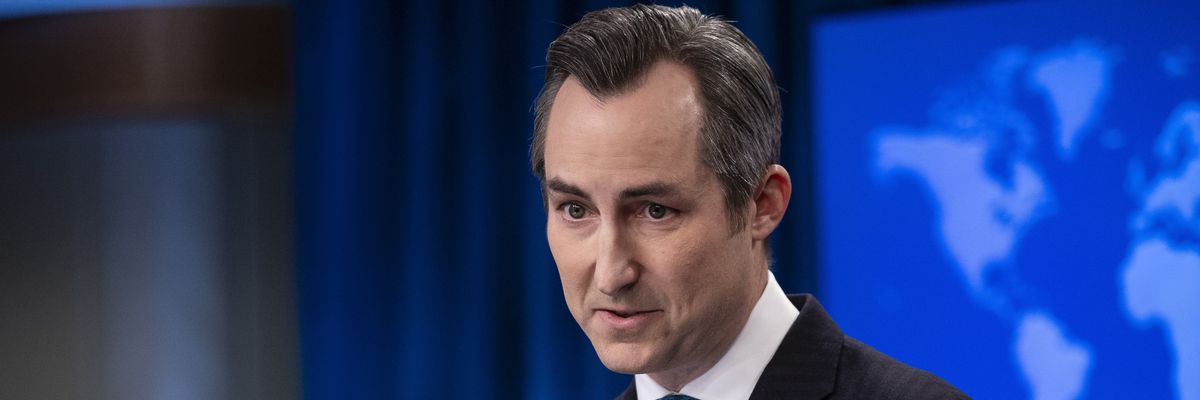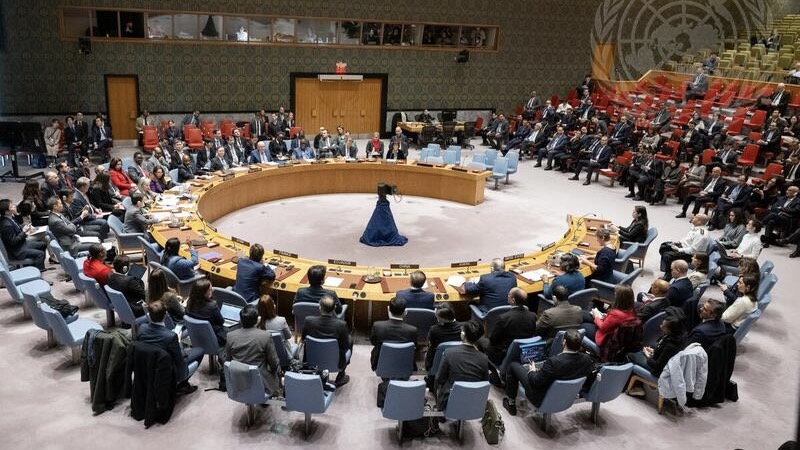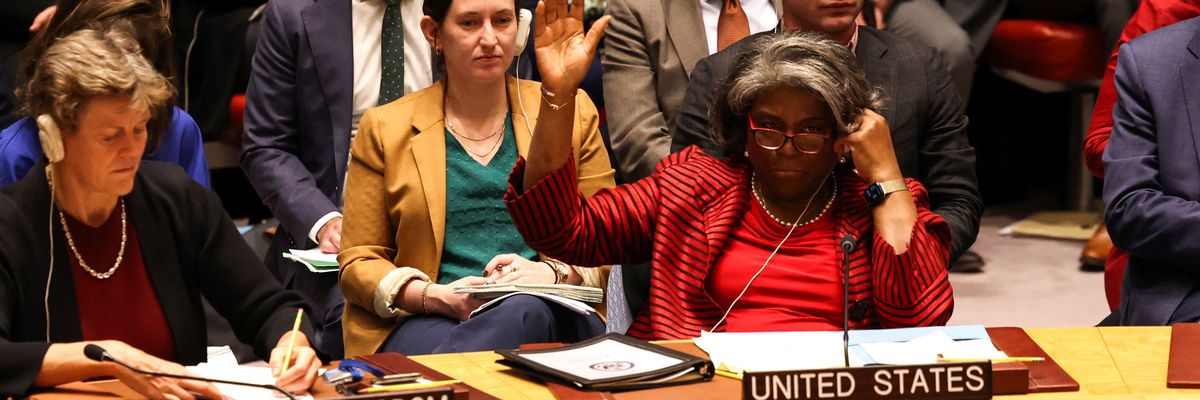US Under Fire for Downplaying Security Council Resolution as ‘Nonbinding’
Oriignal article by JAKE JOHNSON republished from Common Dreams under Creative Commons (CC BY-NC-ND 3.0).

(Photo: Mostafa Bassim/Anadolu via Getty Images)
One expert accused the U.S. of working to “undermine and sabotage the U.N. Security Council, the ‘rules-based order,’ and international law.”
Biden administration officials attempted Monday to downplay the significance of a newly passed United Nations Security Council resolution, drawing ire from human rights advocates who said the U.S. is undercutting international law and stonewalling attempts to bring Israel’s devastating military assault on Gaza to an end.
The resolution “demands an immediate cease-fire for the month of Ramadan respected by all parties, leading to a lasting sustainable cease-fire.” The U.S., which previously vetoed several cease-fire resolutions, opted to abstain on Monday, allowing the measure to pass.
Shortly after the resolution’s approval, several administration officials—including State Department spokesman Matthew Miller, White House National Security Council spokesman John Kirby, and U.S. Ambassador to the U.N. Linda Thomas-Greenfield—falsely characterized the measure as “nonbinding.”
“It’s a nonbinding resolution,” Kirby told reporters. “So, there’s no impact at all on Israel and Israel’s ability to continue to go after Hamas.”
Josh Ruebner, an adjunct lecturer at Georgetown University and former policy director of the U.S. Campaign for Palestinian Rights, wrote in response that “there is no such thing as a ‘nonbinding’ Security Council resolution.”
“Israel’s failure to abide by this resolution must open the door to the immediate imposition of Chapter VII sanctions,” Ruebner wrote.
Beatrice Fihn, the director of Lex International and former executive director of the International Campaign to Abolish Nuclear Weapons, condemned what she called the Biden administration’s “appalling behavior” in the wake of the resolution’s passage. Fihn said the administration’s downplaying of the resolution shows how the U.S. works to “openly undermine and sabotage the U.N. Security Council, the ‘rules-based order,’ and international law.”
In a Monday op-ed for Common Dreams, Phyllis Bennis, a senior fellow at the Institute for Policy Studies, warned that administration officials’ claim that the resolution was “nonbinding” should be seen as “setting the stage for the U.S. government to violate the U.N. Charter by refusing to be bound by the resolution’s terms.”
While all U.N. Security Council resolutions are legally binding, they’re difficult to enforce and regularly ignored by the Israeli government, which responded with outrage to the latest resolution and canceled an Israeli delegation’s planned visit to the U.S.
Israel Katz, Israel’s foreign minister, wrote on social media Monday that “Israel will not cease fire.”
The resolution passed amid growing global alarm over the humanitarian crisis that Israel has inflicted on the Gaza Strip, where most of the population of around 2.2 million is displaced and at increasingly dire risk of starvation.
Amnesty International secretary-general Agnes Callamard said Monday that it was “just plain irresponsible” of U.S. officials to “suggest that a resolution meant to save lives and address massive devastation and suffering can be disregarded.”
In addition to demanding an immediate cease-fire, the Security Council resolution calls for the unconditional release of all remaining hostages and “emphasizes the urgent need to expand the flow of humanitarian assistance.”
Israel has systematically obstructed aid deliveries to Gaza, including U.S.-funded flour shipments.
Farhan Haq, deputy spokesman for the U.N. secretary-general, stressed during a briefing Monday that “all the resolutions of the Security Council are international law.”
“They are as binding as international laws,” Haq said.
Oriignal article by JAKE JOHNSON republished from Common Dreams under Creative Commons (CC BY-NC-ND 3.0).
12 Palestinians Drown Trying to Retrieve Airdropped Gaza Aid From Sea
‘Crucial’ UN Report on Gaza Genocide Must Spur Global Action, Says Amnesty
Sanders Rips ‘Absurd’ US Claim That Israel Is Not Violating International Law


